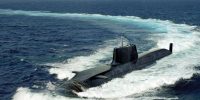
China–US talks offer optimism at bleak time for arms control
After many years of fruitless ‘talks about talks’, China and the US have just met in Washington for what is hoped to be the first in a series of discussions on nuclear arms control, the first since the Obama administration.
The meetings, said to be at the ‘working level’, will likely focus on developing a new approach based on increasing transparency and risk reduction rather than on numbers and inspections. It is hoped that this discussion will feed into a high-level meeting between Presidents Joe Biden and Xi Jinping in San Francisco later in November.
Until now, China has resisted attempts to enter into talks with the US on either a trilateral (with Russia) or bilateral basis, saying that until the US and Russia reduce their numbers down to China’s level – or until China’s build-up matches the numbers of Russia and the US – they would not join the talks.… Seguir leyendo »













